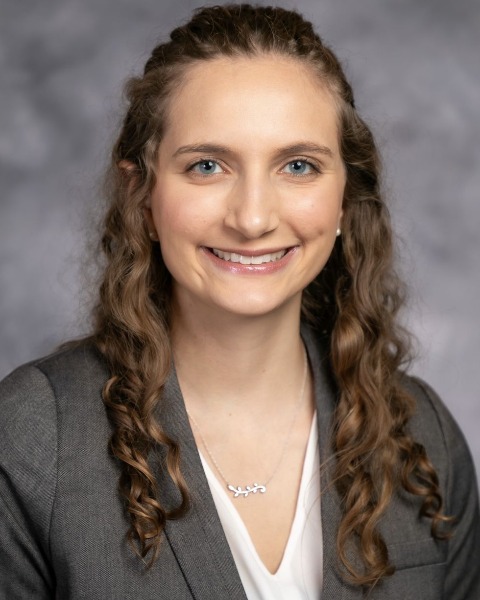Immunizations/Delivery
Session: Immunizations/Delivery 2
54 - Using Mobile Clinics and Live-Attenuated Influenza Vaccine to Reduce Barriers to Flu Vaccination Among College Students
Saturday, May 4, 2024
3:30 PM - 6:00 PM ET
Poster Number: 54
Publication Number: 54.1329
Publication Number: 54.1329

Casey L. Benzaken, BA (she/her/hers)
Medical Student
Northwestern University The Feinberg School of Medicine
Chicago, Illinois, United States
Presenting Author(s)
Background: Rates of annual flu vaccine receipt among college students remains lower than the 2030 Healthy People target of > 70%. College students have previously reported that inconvenience, easiness of forgetting, and lack of time are common reasons why they do not typically receive a flu vaccine. The convenient dosing and storage requirements of live-attenuated influenza vaccine (LAIV) makes it an attractive option for administration outside traditional health care settings.
Objective: This study assessed whether mobile clinics and the use of LAIV reduced self-reported barriers and aligned with preferences to receiving flu vaccines among college students.
Design/Methods: This study consisted of a survey administered through REDCap. Participants were recruited at mobile clinics during the 2022-2023 and 2023-2024 flu seasons. Individuals were eligible for participation if they received a LAIV at a mobile clinic site. This study was approved by the Lurie Children’s Hospital Institutional Review Board. Analyses were conducted in Stata15.
Results: Mobile clinics and data collection are still ongoing. To date, 314 individuals have been vaccinated and 121 have completed the survey. Only 44.6% of participants self-reported that they typically receive a flu vaccine every year. Over 95% of respondents agreed that mobile clinics saved them time receiving a flu vaccine, and 89.8% of respondents agreed that mobile clinics reminded them to receive a flu vaccine. Importantly, 28.1% of participants reported that if they had not received a flu vaccine at a mobile clinic, they would not have gotten one elsewhere. Regarding LAIV acceptance, 56.2% of participants reported that they were more likely to receive a flu vaccine if there was a needle-free option. Of respondents, 42.2% noted a preference for LAIV while 48.8% noted no preference between intranasal and injectable vaccines.
Conclusion(s): Mobile clinics are a useful way to alleviate barriers to receiving a flu vaccine on college campuses. Moreover, they have the potential to increase rates of flu vaccination among individuals who may not otherwise receive a flu vaccine. This study also suggests that mobile clinics should offer a needle-free option to increase vaccine uptake within this population.
